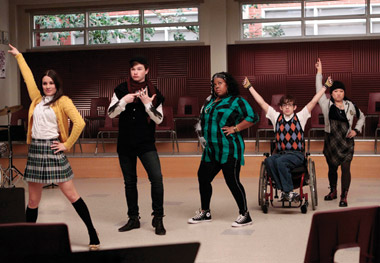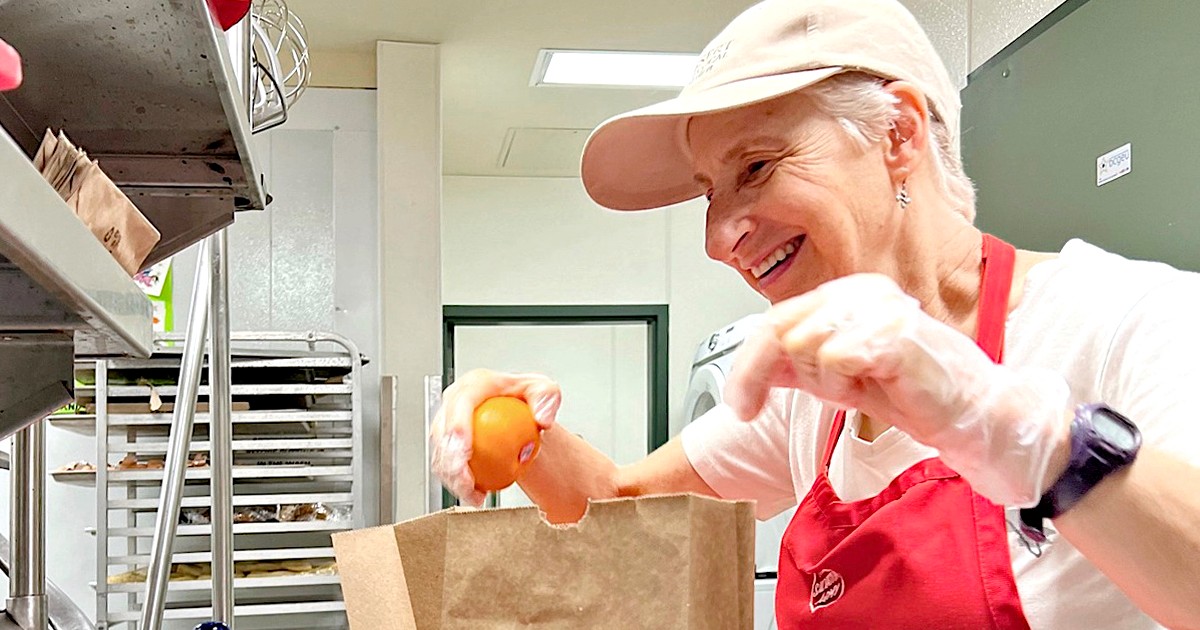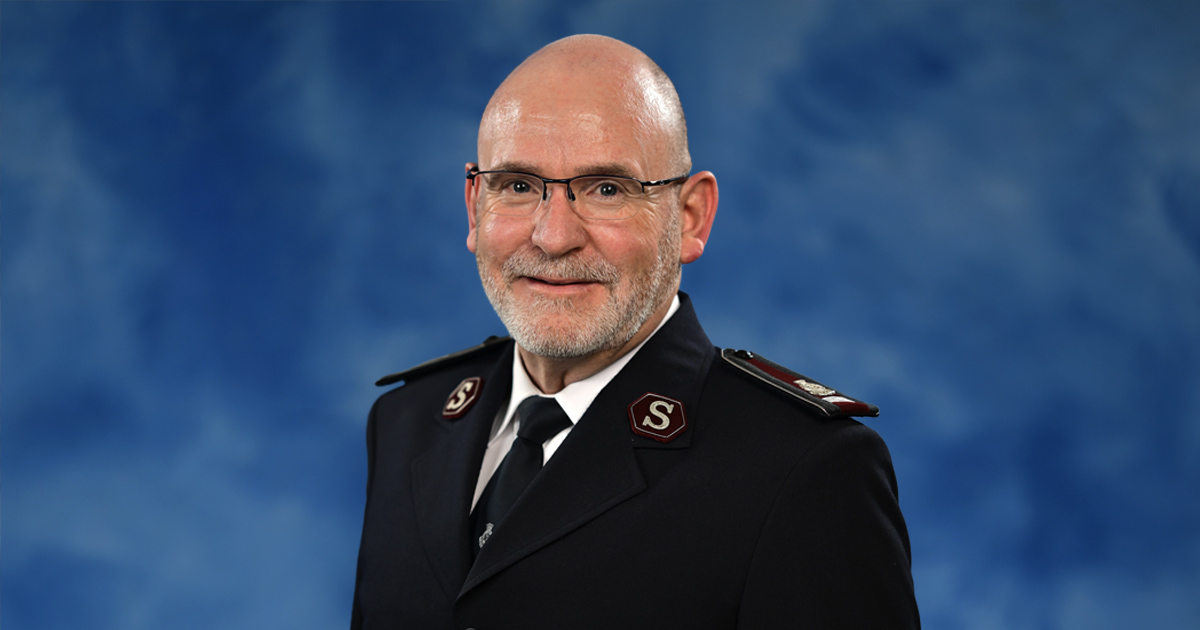 “If there are two things America needs right now, they're sunshine and optimism!”
“If there are two things America needs right now, they're sunshine and optimism!”
—Rachel, Glee Club soloist
Anyone who shares these sentiments needs a healthy dose of Glee, the popular new musical comedy-drama on Fox TV that's been sweeping the ratings and dominating water-cooler chatter.
Shows Must Go On
Glee is set within the fictional confines of William McKinley High School in Lima, Ohio. Will Schuester (Matthew Morrison), who as a student helped his school's glee club win the national championships, has returned to his alma mater as a Spanish teacher. When he learns that the glee club's adviser was fired for inappropriate conduct, he receives permission to take it over, renaming it New Directions.
In his aim to revitalize the fading fortunes of the glee club, Will is pitted against Sue Sylvester (Jane Lynch), head coach of the Cheerios, the school's phenomenally successful cheerleading squad. Sue takes her duties seriously. “Nobody quits the Cheerios,” she snarls. “You either die or I kick you off.” Sue delights in tormenting Will and belittling the glee club “losers.” “I will not stop until you're fired and your little glee club is annihilated into oblivion,” she warns him early on. Their adversarial relationship forms the backdrop for the series.
At the beginning of the season, New Directions consists of five misfit students, woefully lacking in enthusiasm and effort. But with Will's guidance and support, their performances eventually attract a dozen enthusiastic students of various races, sizes, talents and abilities, who put on stellar performances every week. The show always goes on, to the delight of its TV audience.
Multifaceted Success
Glee's debut season has met with spectacular acclaim. Season Two airs this fall and the show has already been picked up for a third season. Musical artists including Kristin Chenoweth, Eve, Josh Groban and Olivia Newton-John have made cameo appearances, with Jennifer Lopez and Britney Spears rumoured to be joining their ranks.
 Glee has garnered numerous awards, including a Peabody for being “dependably tuneful and entertaining,” a Golden Globe for Best Television Series (Musical or Comedy) and 19 Emmy nominations.
Glee has garnered numerous awards, including a Peabody for being “dependably tuneful and entertaining,” a Golden Globe for Best Television Series (Musical or Comedy) and 19 Emmy nominations.
People tune in every week to see the truth behind the façade of the typical squeaky-clean glee club image. Like most high-schoolers, these teenagers, along with their adviser, struggle with lying, cheating, stealing and lusting. Glee illustrates how easily one's moral compass can become demagnetized and how quickly one can stray off course—and how one gets back on course.
All for One
Another part of the show's appeal is that there isn't one single star: from week to week, the writers draw us into the lives of different characters. The glee-club members each face their own trials and tribulations. Quinn (Dianna Agron), one teenager who seems to have it all, unexpectedly gets pregnant, is kicked out of her home, breaks up with her boyfriend and has to accept a place to live from a glee club member she barely knows. Kurt (Chris Colfer), one of the smaller members of New Directions, gets beaten up by the football team. Ambitious, beautiful and insecure Rachel (Lea Michele) is bullied by members of the cheerleading squad.
What prevents the series from becoming one long soap opera is the characters' belief that no one's life is so bad that a song and dance can't make it better.
Christians have always known this. The Bible says that King David, a man after God's own heart, sang and danced before the Lord. The Apostle Paul tells us twice in the same verse to rejoice in the Lord always (Philippians 4:4). Paul practised what he preached. He and his co-preacher Silas sang while bound and bleeding in a Roman prison, earning them a supernatural deliverance.
In the face of their challenges, New Directions presents an “all for one, one for all” united front. The members of the club stick up for Rachel when she gets egged, and when Kurt gets beaten up, Finn (Cory Monteith), the tallest teen in the club, comes to his defence.
 The members of New Directions know that they need to support each other for their glee club to survive. In this, they have a lot in common with the Early Church. The Apostle Paul says, “Just as a body, though one, has many parts, but all its many parts form one body, so it is with Christ…. The eye cannot say to the hand, 'I don't need you!' And the head cannot say to the feet, 'I don't need you!' On the contrary, those parts of the body that seem to be weaker are indispensable” (1 Corinthians 12:12, 21-22).
The members of New Directions know that they need to support each other for their glee club to survive. In this, they have a lot in common with the Early Church. The Apostle Paul says, “Just as a body, though one, has many parts, but all its many parts form one body, so it is with Christ…. The eye cannot say to the hand, 'I don't need you!' And the head cannot say to the feet, 'I don't need you!' On the contrary, those parts of the body that seem to be weaker are indispensable” (1 Corinthians 12:12, 21-22).
This is just as true today. Christians know that though we may be different from one other, each of us is indispensable and unique in the eyes of God.
Rainbow Dreams
In the lead up to the season finale, the school principal tells Will that New Directions must triumph at the regional championships in order for it to remain a school-sanctioned club. Despite a stellar performance, an unethical judging panel denies them a rightful first-place award.
Though the club is resigned to the fact that it's all over—and sings about it, in best Glee tradition—good-byes become unnecessary.
Their rescue comes from an unlikely source. After a season of tormenting Will, Sue blackmails the principal into letting New Directions remain in existence.
Is there something more to her scheming? Perhaps we will find out this coming season.
For the moment, New Directions' unlikely survival echoes the biblical truths that hope often comes unlooked for and unexpectedly, and that love and faith are stronger than helplessness and despair.
Fittingly, the season finale's last song is “Somewhere Over the Rainbow.” As Will sings, “The dreams that we dare to dream really do come true,” the teens and their leader, despite all of their turmoil, can continue to be Gleeful.









Comment
On Sunday, October 10, 2010, Heather said:
On Tuesday, October 5, 2010, Jeremy said:
On Wednesday, September 29, 2010, Robert said:
Read what was said. My criticism was that the article didn't mention the questionable topics. It was a glowing report which glossed over these areas instead of warning potential viewers that Glee might not be their cup of tea. Some people may feel this seeming endorsement reflects poorly on Faith & Friends and The Salvation Army.
As a family we discuss many of the issues Glee raises. But I'd rather my daughter not have a steady, consistent diet of this material. As you say "the topics in Glee are ones that surround us." We don't need to overexpose ourselves to these things, lest they dilute our spiritual walk.
And in case you think I'm a spiritual prude, I'm involved in the media and have an extremely good handle on what both the mainstream and Christian media present - both negative and positive. Spiritual discernment about how much I need to expose myself to keeps me from straying too far into the danger zone.
On Tuesday, September 28, 2010, jennifer said:
On Friday, September 10, 2010, Kathie Chiu said:
However, when our two younger children, 10 & 12 were interested in the show Glee because of the music, which is a big attraction, I decided to watch for myself - and loved it. However, I was absolutely sure I didn't want my boys watching an episode where the teenagers were discussing how the girl got pregnant and I certainly wasn't going to let them watch another episode that had the coach of the Cherrios taking pictures of the principal and herself in bed to use as blackmail.
Clearly, I agree with Robert that a note that this show isn't suitable for all would be helpful.
As for the music, you can bring up the musical numbers on YouTube and so that is what my kids watch instead.
grace... kathie
On Wednesday, September 8, 2010, Robert said:
"So, from that perspective, and with the general caveat “viewer discretion is advised”, I think it’s worth look a second glance."
My point exactly. The writer needed to present this perspective in order to be fair Faith & Friends', and this website's, readers rather than present the overwhelmingly supportive article that was written. Instead of this glowing endorsement for the show, it should have at least mentioned the show's problematic aspects with the caveat you suggest.
What I find most troubling is that this seems to represent an increasing trend among Christians: to unequivocally accept what the world throws at us without biblical discernment. I know too many who accept Oprah's words as "gospel," who watch Glee or Jersey Shore without thinking about the philosophies being presented and whether or not they glorify Christ.
Paul said, in reference to the meat being sacrificed to idols debate in I Corinthians 10:23: "Everything is permissible"—but not everything is beneficial. "Everything is permissible"—but not everything is constructive." (NIV).
Glee included.
On Monday, September 6, 2010, Rae said:
Now, am I at all suggesting that the solutions or resolutions the show's writers come up with to deal with those challenging situations are always in line with what the Christian or Salvationist response should be? No. In many instances, they're clearly not. In several instances, they're clearly diametrically opposed to what our response should be. I won't argue that at all.
Neither would I challenge your right as a parent to monitor and govern what material your child views. That's certainly your call, even your responsibility, and I have no problem with it, whatsoever. I applaud parents who take such an interest in their kids' activities.
However, the author's not wrong about the patterns she sees and how they, to some small degree, echo Scripture and the early Church. Admittedly, given that three-quarters of the article seems more a summary of the show and its awards than anything else, that thesis comes across more as an afterthought tacked onto a TV Guide article than the heart of the matter. But that doesn't make it any less true. Simplistic and generalized, yes. But, not untrue. Not as far as it goes, as written, anyway.
Having said all that, what I do think is good about the show, what's worth considering and a point the author overlooked, is that it can open the door for frank and natural discussions of the topics it addresses, how the characters handle the situations in which they find themselves, and whether our responses to similar situations should echo or oppose what the characters do. Particularly when those discussions are with young people.
Too, I believe these are discussions that need to happen. I don't consider myself a fan of the show, by any means. But I've watched it often enough to have been able to hold several in-depth conversations with the young people I mentor, based on the episodes we've seen. I'm always pleased with, and often surprised by, just how astute the youth can be in their observations, and how they respond to a thoughtful analysis of what they've seen. More than that, I've found that getting them talking about how they actually feel about these topics and, more importantly, why they feel that way, is crucial to helping them develop a sound understanding of the moral and ethical questions facing Christians in today's society -- an understanding that goes beyond a simple "because the Bible says so" response and into a practical application of Scripture within a context and at a level they understand and thus to which they can more readily relate.
So, from that perspective, and with the general caveat "viewer discretion is advised", I think it's worth look a second glance.
On Friday, September 3, 2010, Robert said:
A little more research would have shown that there are many who find themes and situations in Glee which are unwholesome and shouldn't be viewed. I've had many an argument with my teenage daughter about the inappropriateness of Glee and an article like this is extremely unhelpful.
Leave a Comment